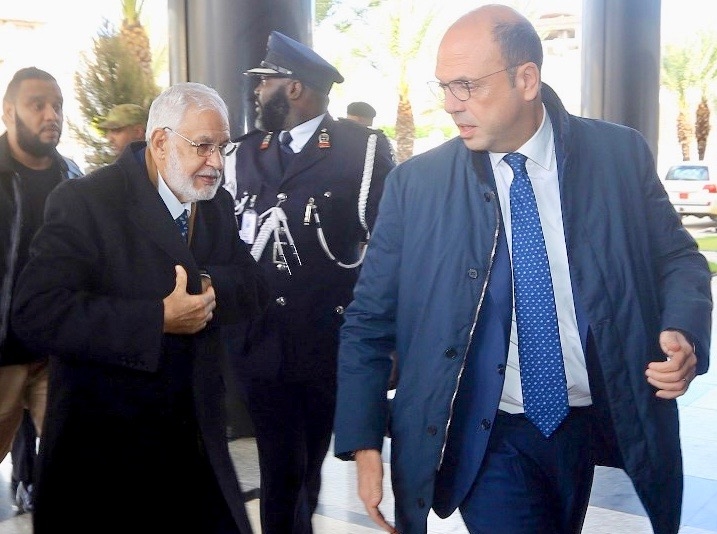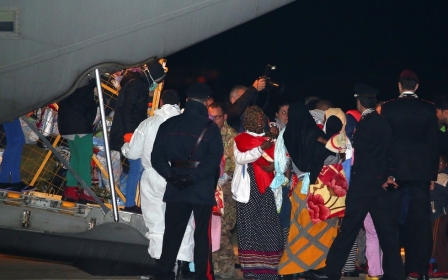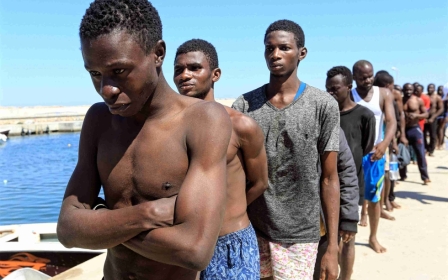Italy foreign minister visits Libya amid migrant controversy
United Nations began bringing vulnerable African refugees directly to Italy from Libya on Friday

Libya's unity government Foreign Minister Taha Siala (left) welcomes Italy's Foreign Minister Angelino Alfano, in the Libyan capital Tripoli on Saturday (AFP)
Published date: Dimanche 24 décembre 2017 - 09:41
|
Last update: 6 années 11 mois ago
Middle East Eye propose une couverture et une analyse indépendantes et incomparables du Moyen-Orient, de l’Afrique du Nord et d’autres régions du monde. Pour en savoir plus sur la reprise de ce contenu et les frais qui s’appliquent, veuillez remplir ce formulaire [en anglais]. Pour en savoir plus sur MEE, cliquez ici [en anglais].




